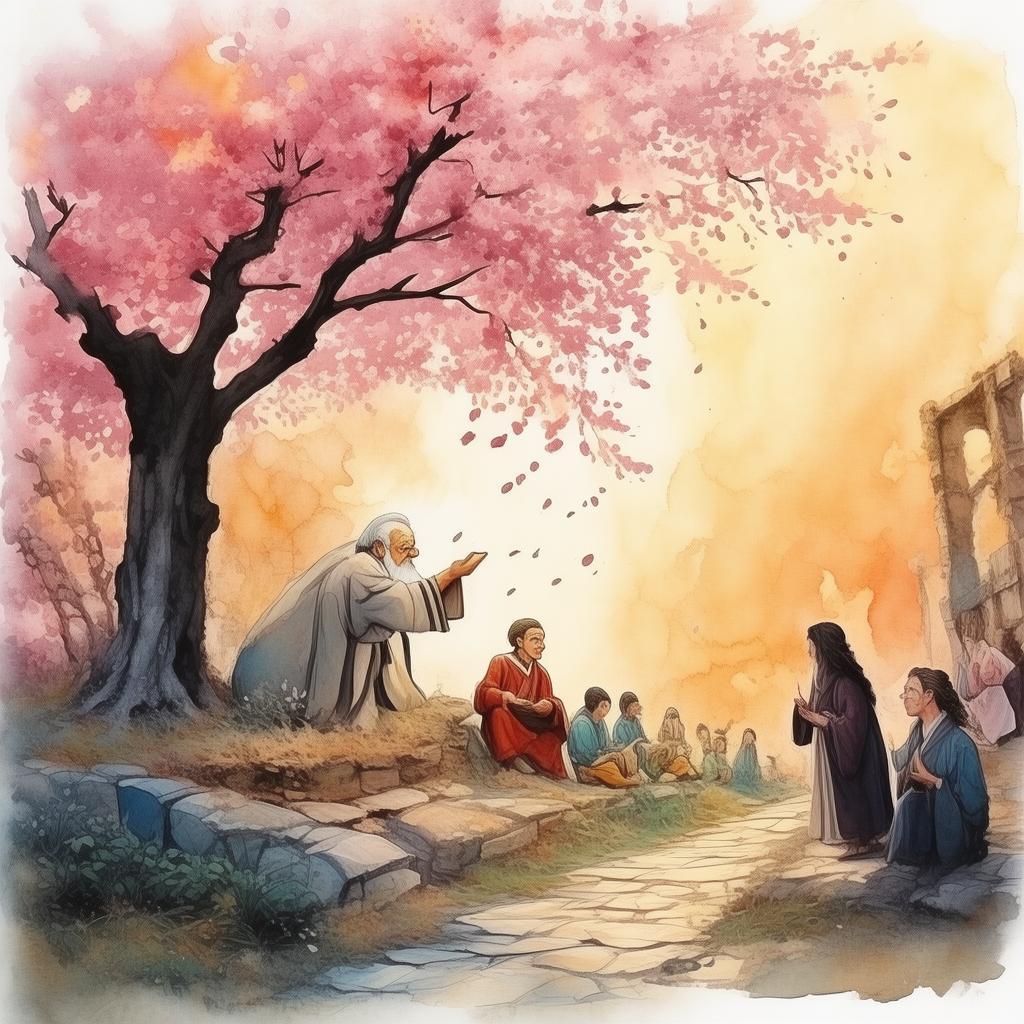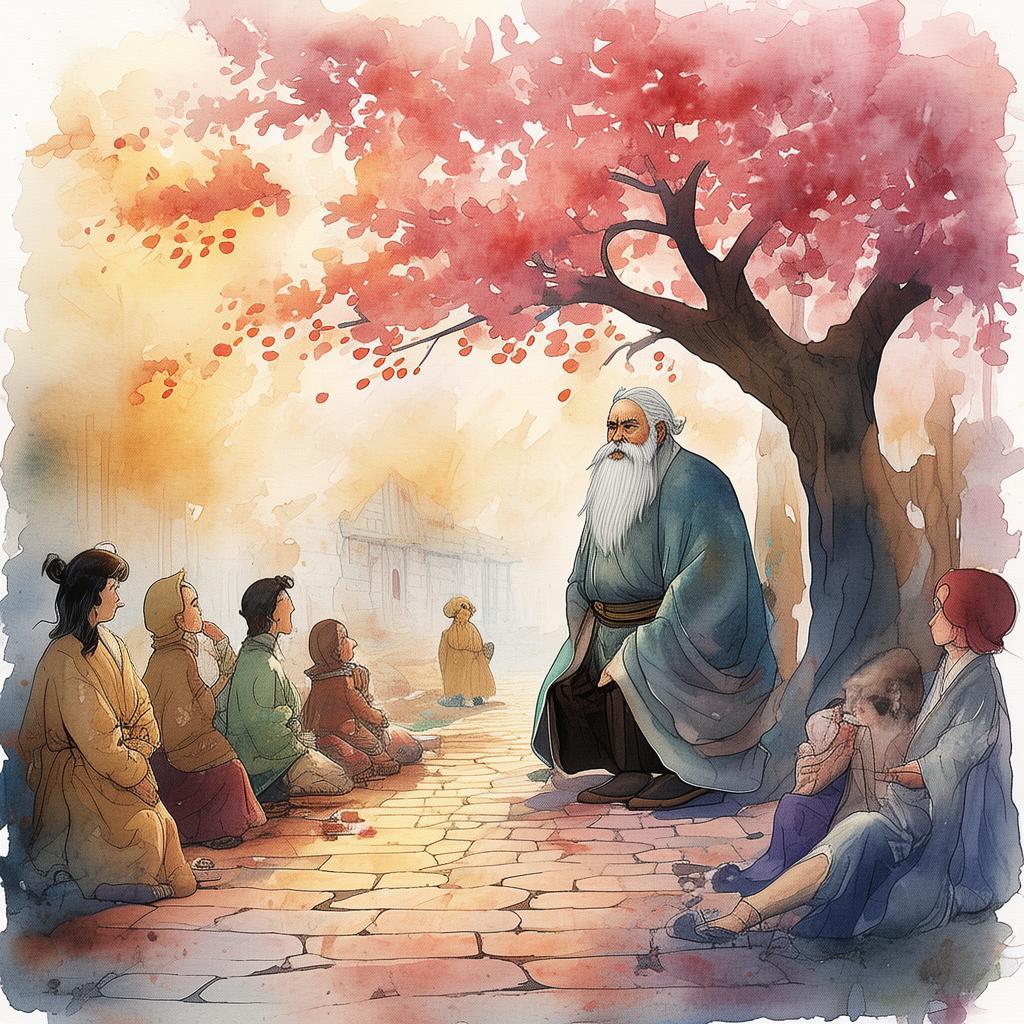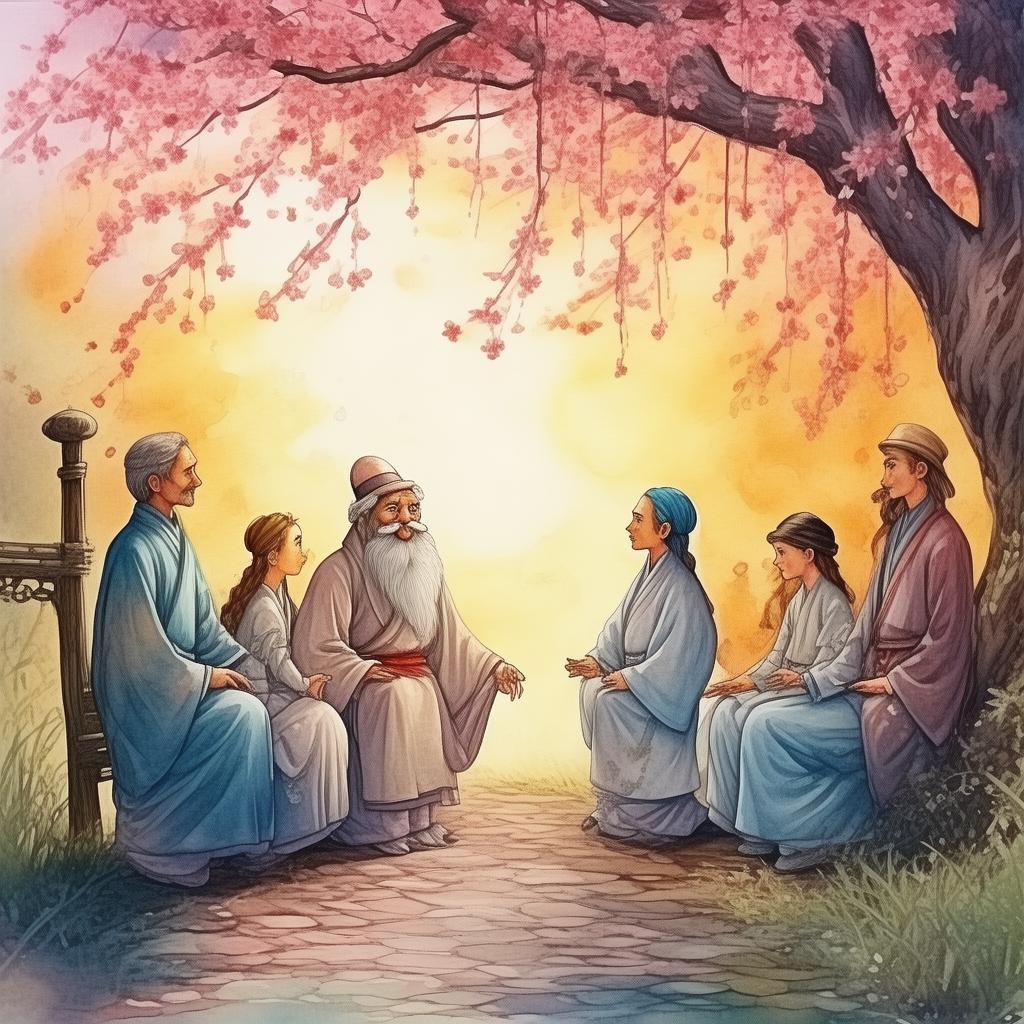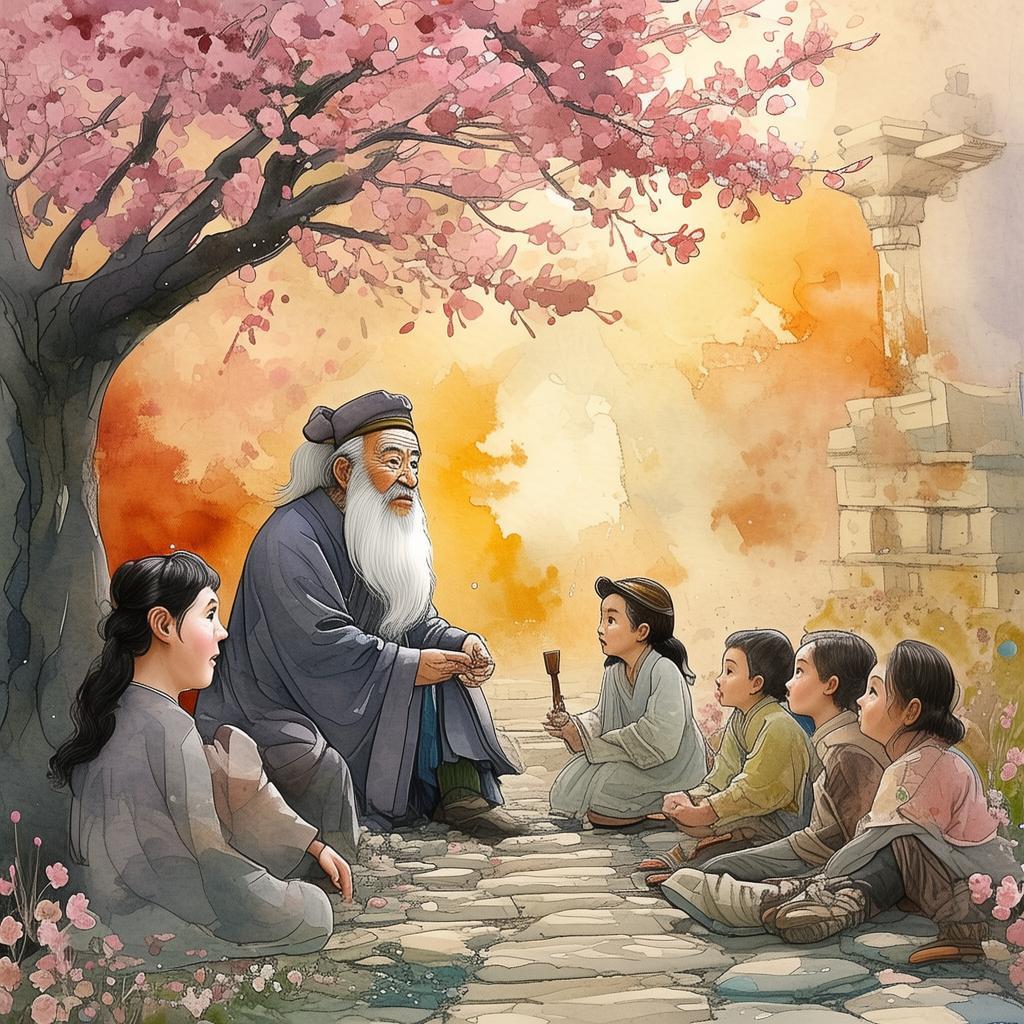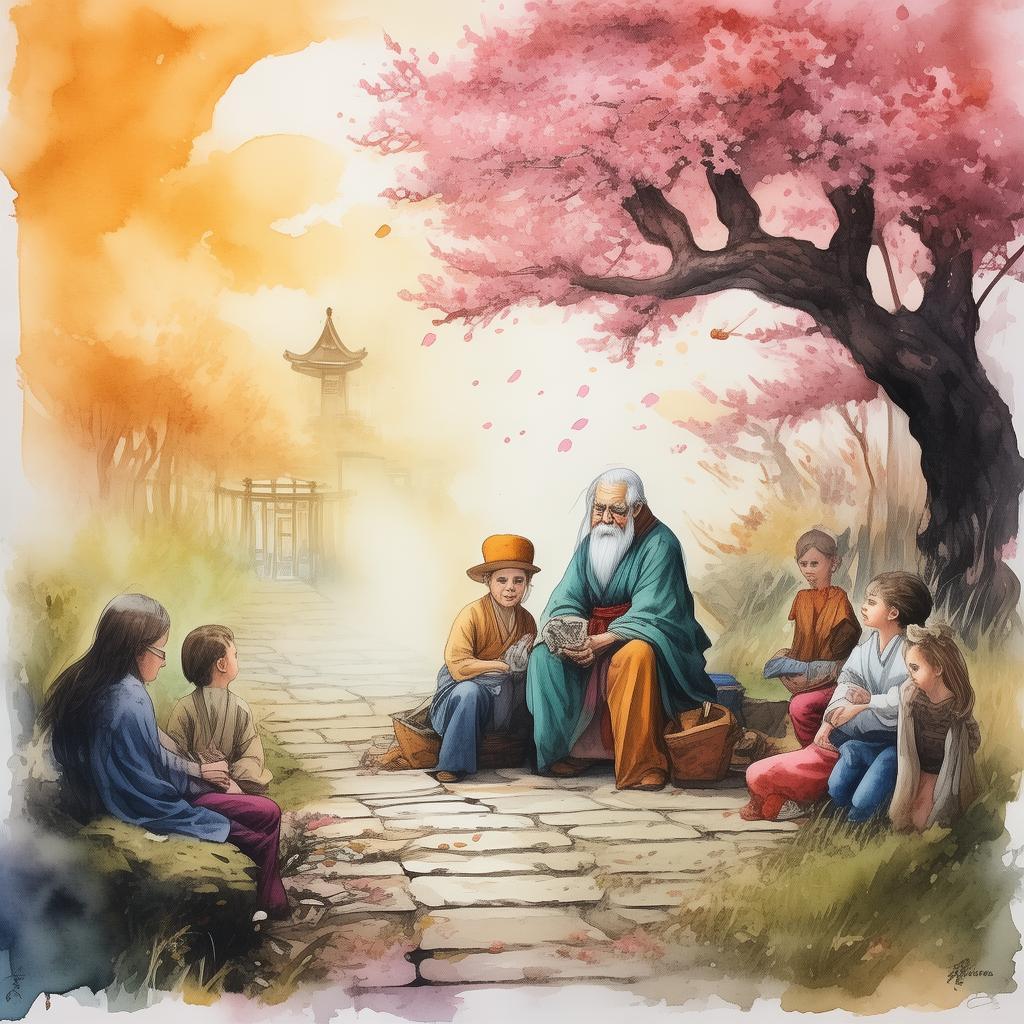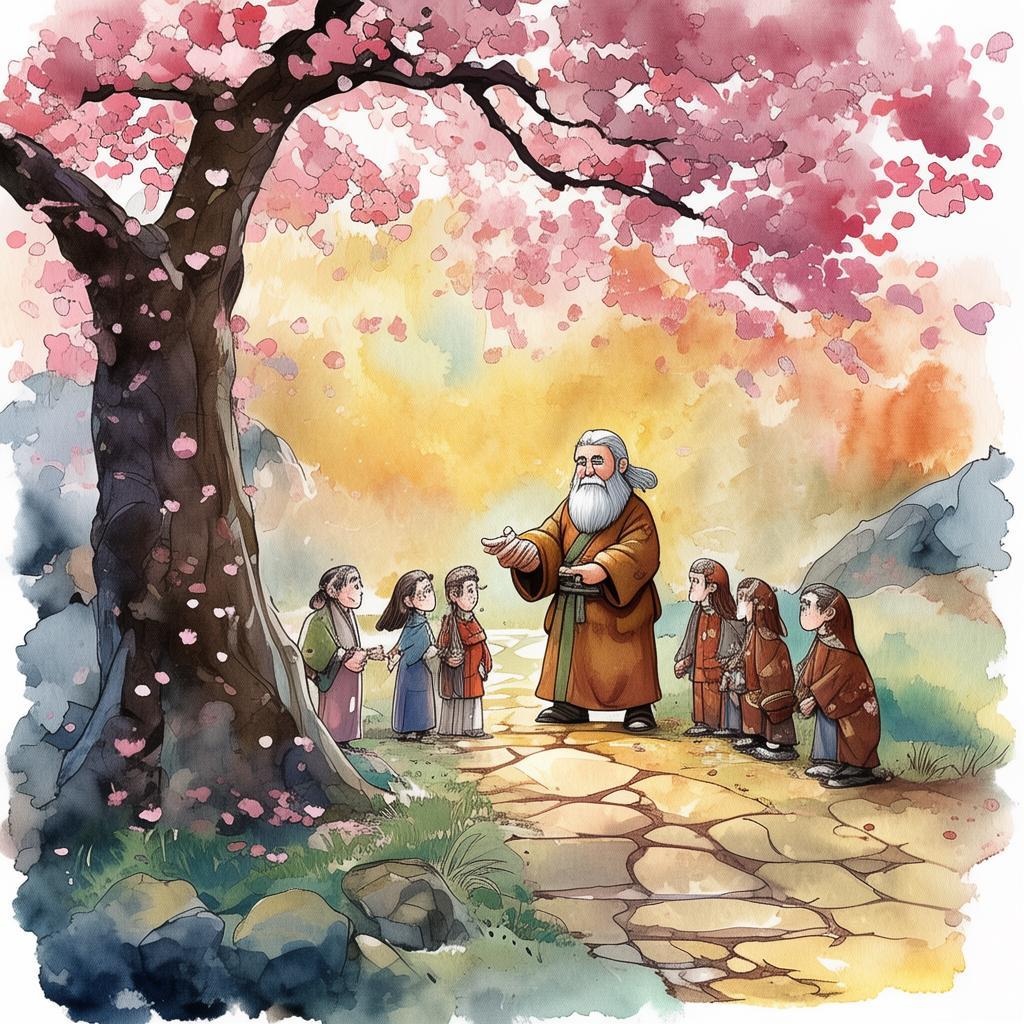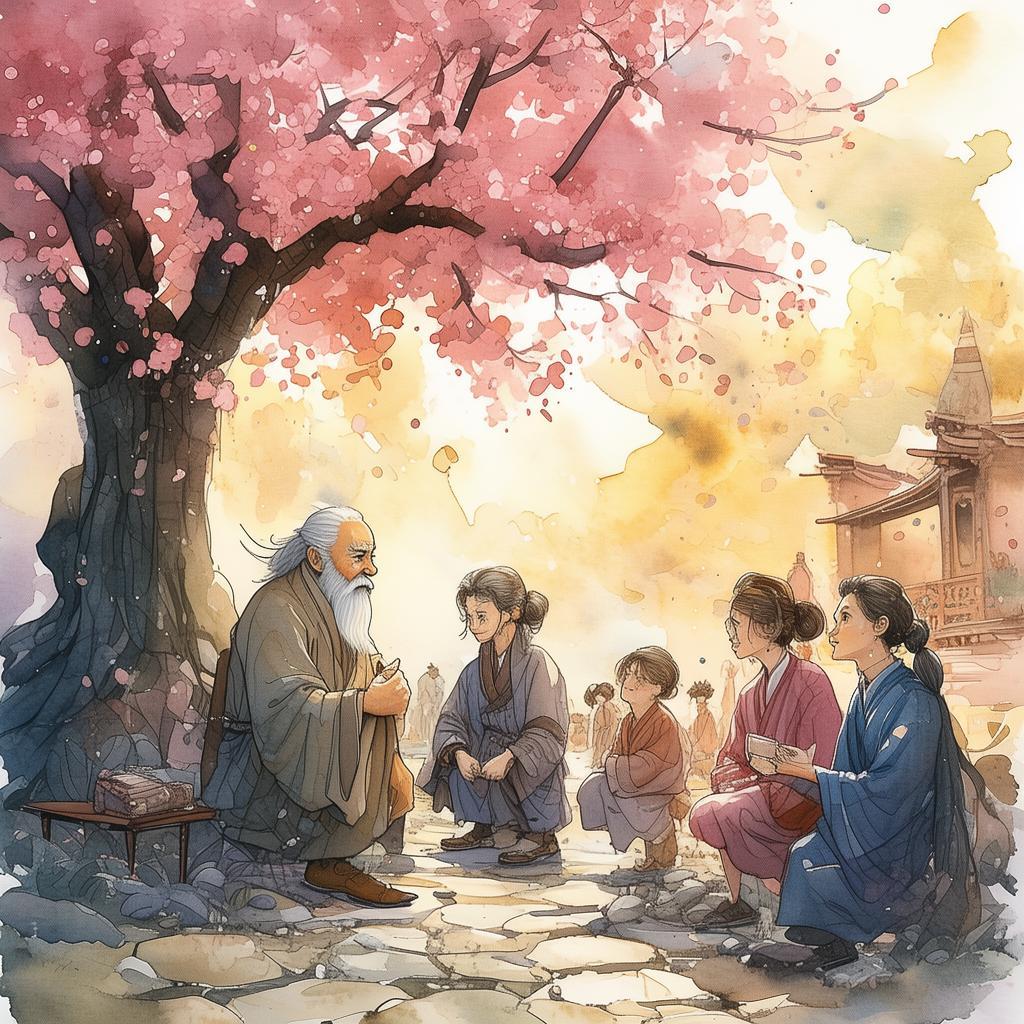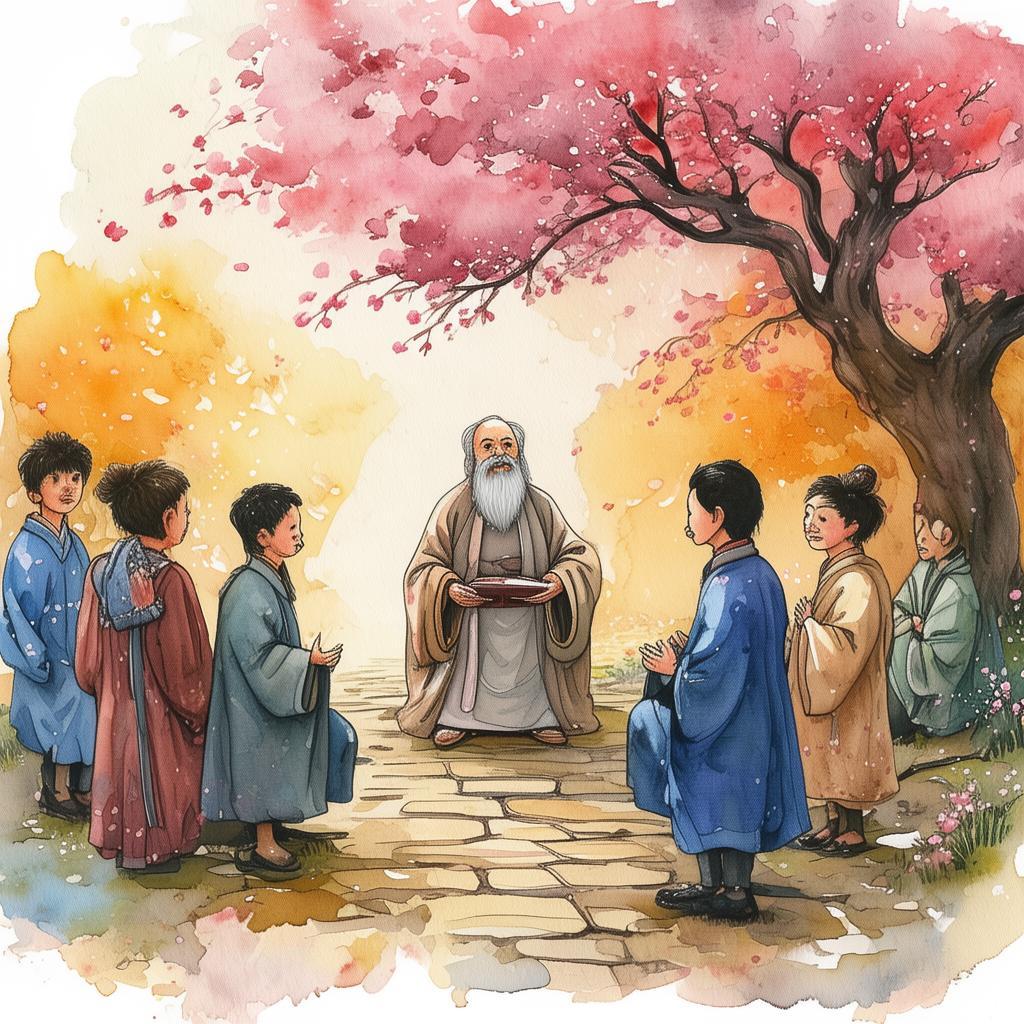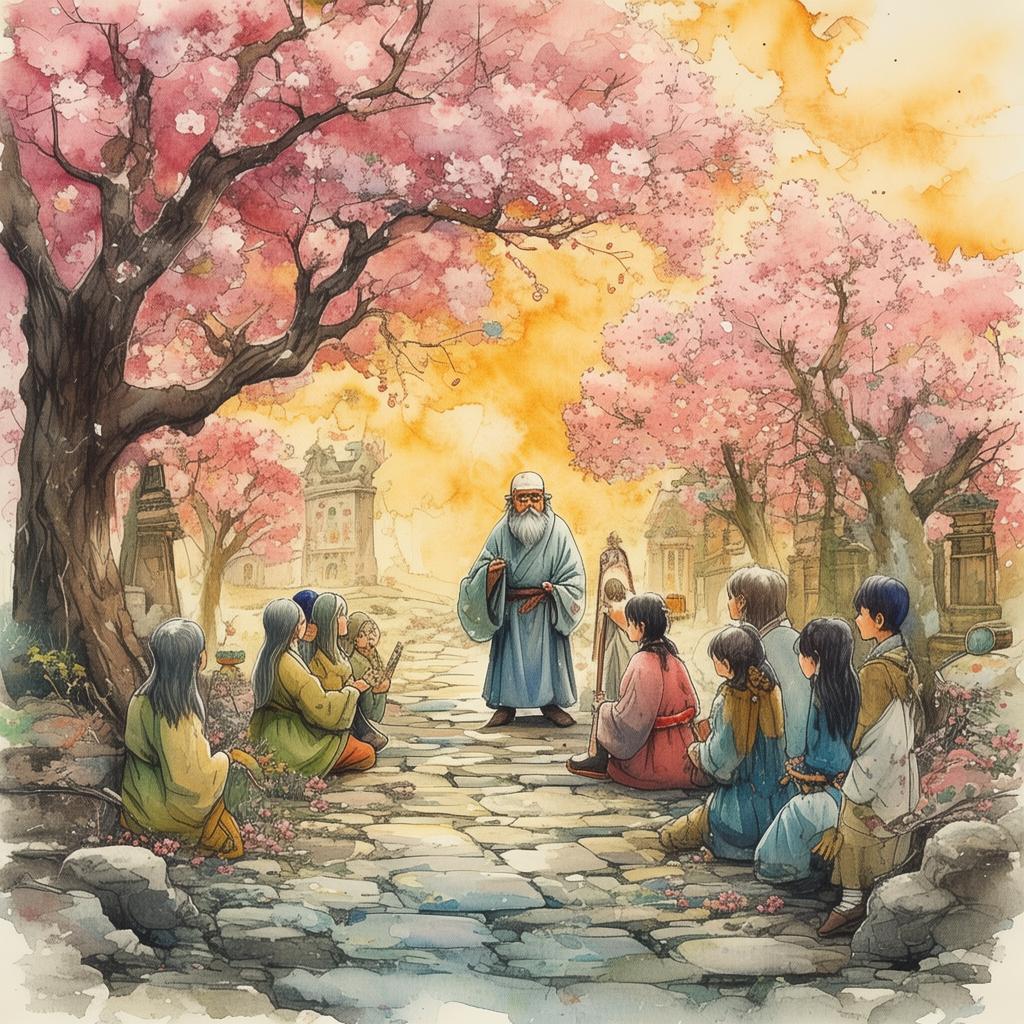Confucian Chef's Culinary Calamity: The Art of Disaster
In the bustling town of Jingzhou, there stood a restaurant known far and wide for its exquisite cuisine. The Confucian Chef, whose name was whispered with reverence, was the maestro behind this culinary marvel. His dishes were as much a testament to the ancient art of Chinese cooking as they were to the wisdom of Confucius himself. The Chef's restaurant was a beacon of culinary excellence, drawing patrons from far and wide.
One evening, as the sun dipped below the horizon, casting a golden hue over the town, a young man named Ming arrived at the restaurant. Ming was a humble apprentice, but his passion for cooking was as fervent as any seasoned chef. He had heard tales of the Confucian Chef's culinary prowess and was eager to learn from the master.
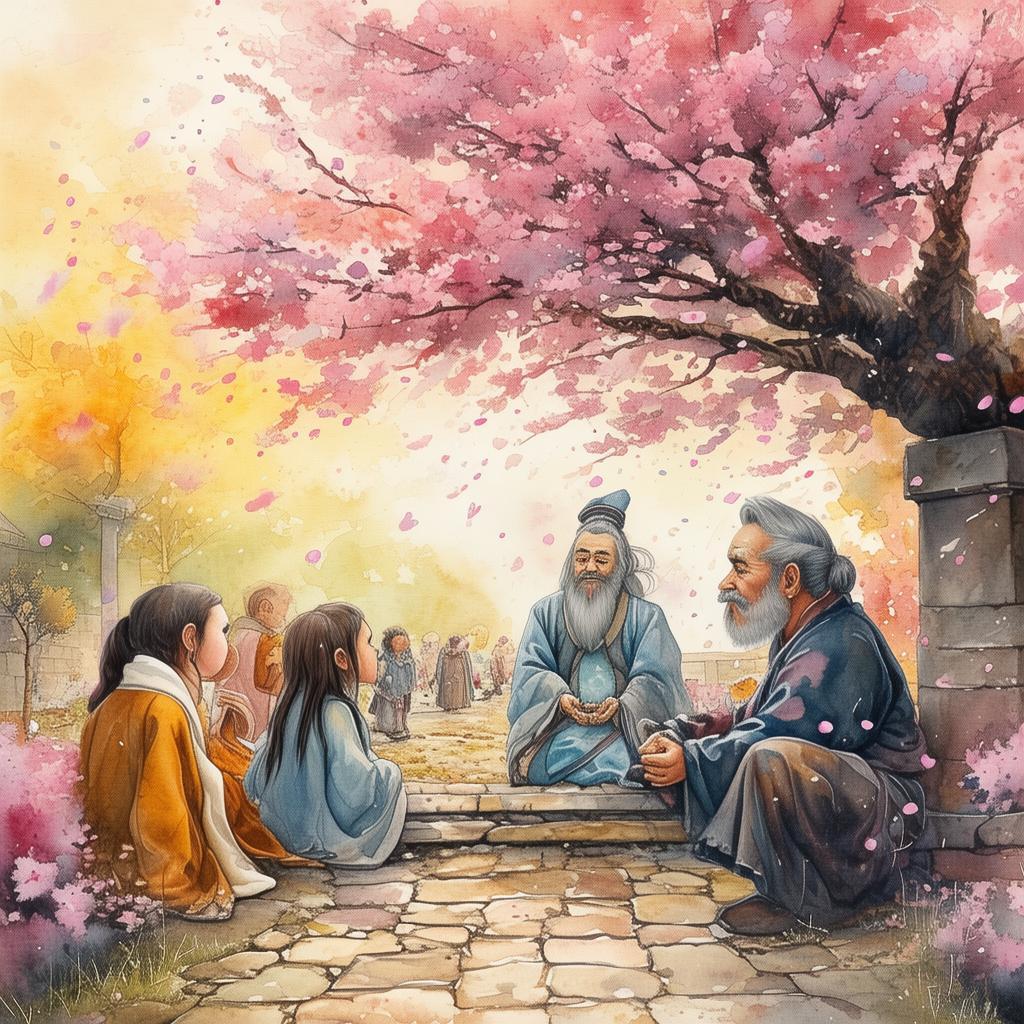
As Ming entered the restaurant, he was greeted by the aroma of sizzling woks and simmering pots. The air was thick with the scent of fresh herbs and spices, creating an atmosphere of anticipation. Ming approached the Chef, who was meticulously preparing a dish that would soon become the centerpiece of the evening's menu.
"Chef, I have been following your teachings for years," Ming said, his voice filled with respect and admiration. "I am eager to see the dish that will define my culinary journey."
The Confucian Chef, with a twinkle in his eye, replied, "Ming, tonight, we will create a dish that will not only delight the palate but also serve as a lesson in humility."
The Chef began to prepare a seemingly simple dish, a dish that had been a staple in his repertoire for years. He carefully chopped the vegetables, seasoned the meat, and arranged the ingredients with precision. Ming watched in awe, noting the Chef's focus and dedication.
As the dish was served, the guests gasped in delight. The flavors were rich and complex, a perfect harmony of sweet, sour, salty, and spicy. Ming felt a surge of pride, certain that he would soon be able to create such masterpieces.
However, as the night progressed, a series of culinary calamities began to unfold. The next dish, a delicate soup, turned into a fiery broth that scalded the lips of the first few diners. The following dish, a beautifully plated dessert, was greeted with cries of despair as it collapsed into a heap of rubble upon contact with the plate.
The diners were aghast, and the restaurant's reputation began to suffer. The Confucian Chef, realizing the gravity of the situation, called for a moment of silence. He then addressed the diners, his voice filled with contrition.
"Ladies and gentlemen, I have failed you. I have allowed my pride to cloud my judgment, and as a result, we have experienced a series of culinary calamities. I am deeply sorry for this oversight, and I promise to rectify the situation immediately."
The Chef then returned to the kitchen, determined to uncover the root of the problem. Ming, who had been observing the chaos, noticed a pattern. Each time the Chef focused too intently on the dish, it seemed to take on a life of its own, becoming something unrecognizable.
The Chef's realization was profound. He had become so consumed by the pursuit of culinary perfection that he had forgotten the essence of his craft. It was not merely about the flavors and presentation, but about the connection between the cook and the dish, the respect for the ingredients, and the understanding of the diners' tastes.
With a newfound humility, the Chef returned to the kitchen. He began to prepare each dish with a focus on the ingredients and the diners' expectations. The result was a series of dishes that were not only delicious but also harmonious, a testament to the Chef's understanding of the true art of cooking.
As the night came to a close, the diners left the restaurant with smiles on their faces. The restaurant's reputation was restored, and the Confucian Chef had learned a valuable lesson in humility and the importance of balance.
Ming, inspired by the Chef's transformation, realized that the pursuit of culinary excellence was not about showcasing one's skills but about respecting the art and the people who appreciate it. He vowed to carry this lesson with him as he continued his journey in the culinary world.
The story of the Confucian Chef's Culinary Calamity spread far and wide, becoming a parable for the importance of humility and balance in all aspects of life. And so, the Chef's restaurant continued to thrive, not because of the Chef's culinary prowess alone, but because of the wisdom and understanding he had gained through his trials and tribulations.
✨ Original Statement ✨
All articles published on this website (including but not limited to text, images, videos, and other content) are original or authorized for reposting and are protected by relevant laws. Without the explicit written permission of this website, no individual or organization may copy, modify, repost, or use the content for commercial purposes.
If you need to quote or cooperate, please contact this site for authorization. We reserve the right to pursue legal responsibility for any unauthorized use.
Hereby declared.
